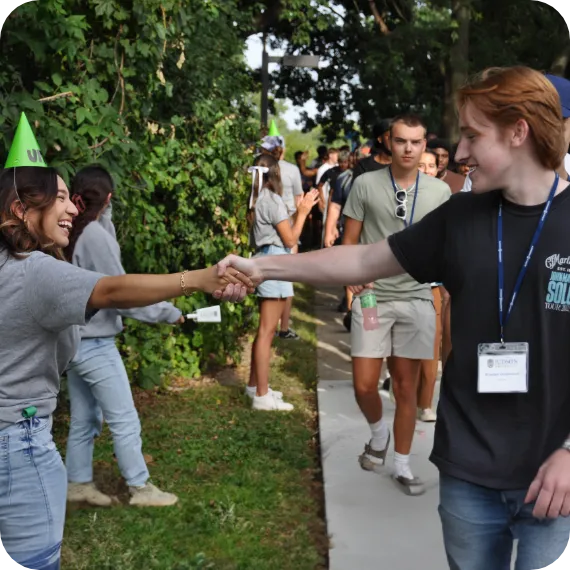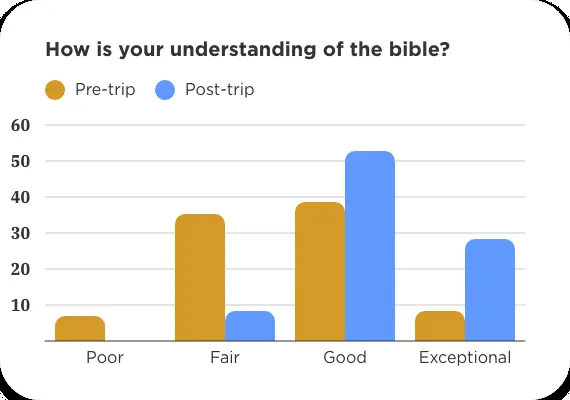Our Mission
Our mission is to engage students in an EPIC learning opportunity to promote biblical engagement and increase biblical literacy in a manner effective for Gen Z students in the twenty-first century.
Vision for the Future
Empowering the next generation through Scripture by offering innovative educational programs, interactive resources, and supportive community initiatives.
Our Journey
How We Started & Our Ongoing Commitment
Biblical understanding and engagement among today’s Gen Z college students is at a crisis point. People do not read the Bible as often as they did a few years ago. For most of the last decade, about half of Americans said they used the Bible three or more times per year.
The goal of the Biblical Literacy Project is to engage students in an EPIC learning opportunity to promote biblical engagement and increase biblical literacy in a manner effective for Gen Z students in the twenty-first century.
We accomplish this by introducing students to engaging experiences that further their interest in The Bible. Recent case studies showed an overwhelmingly positive response from the student participants to the purpose and methods adopted in the Biblical Literacy Project study. This experience impacted all participants in some way, and truly encouraged and inspired most students to be more engaged with the Bible. The experience improved their understanding of God’s Word and its place in our faith, in human history and, to a lesser extent, in the modern world of culture, science and politics.

Meet Our Experts
Introducing the Team Behind the Biblical Literacy Project

Dr. Gene Crume
President of Judson University

Steven Simonyi-Gindele
Founder

Adam Wright
President of Dallas Baptist University

Jolene Erlacher ED.D.
Speaker & Author – Leading Tomorrow

Bob Gerstmyer
Professor at Palm Beach Atlantic University.

Chris Lesner
Board Member & CEO of
Project World Impact
Impact of The Biblical Literacy Project
Key Metrics and Outcomes from Our Initiatives.

Students were asked
“How did the information and experiences on this trip affect your interest in the Bible?”
Out of the 91 responses to this post-survey question, 62 students indicated the experience increased their interest significantly; 26 students indicated it increased their interest somewhat; 3 students indicated it did not increase their interest at all.

The pre-trip responses included
41% who answered “Fair” or “Poor” when asked to describe their understanding of the Bible.
The post-trip responses included
97% of participants responded “Good” or “Exceptional” to the same question showing a significant increase in a positive understanding of the Bible.
